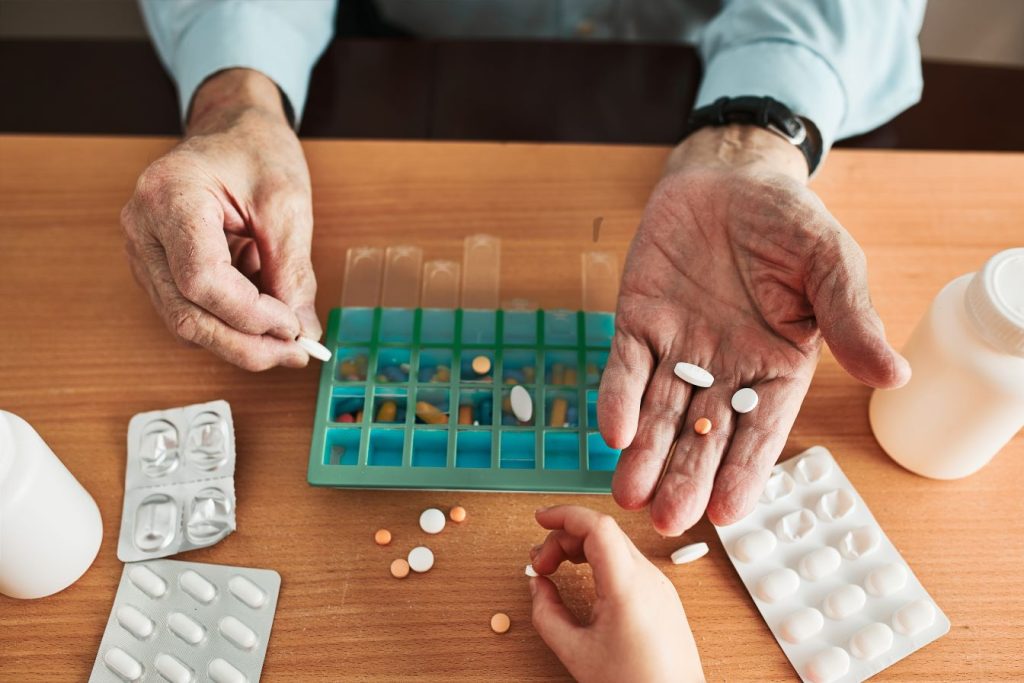Medication management is a crucial aspect of elderly care, requiring meticulous attention to ensure safety and effectiveness. For older adults, especially those with multiple health conditions, navigating the complexities of prescription and over-the-counter medications can be a daunting task. Potential side effects, drug interactions, and keeping track of expiration dates are just a few of the challenges they may encounter.
But fortunately, all it takes is a little organization to make managing your medications a breeze. Read on to learn practical tips for medication safety, and remember, it’s essential to have a list of all the medications being taken when consulting with any healthcare professional.
Organize Your Prescriptions
A neat list or paper copies of all prescription medications, over-the-counter medications, and supplements in one folder can be a lifesaver, especially for older adults managing multiple medications. This list should include the:
- name of each medication
- dosage
- prescribing healthcare professional
- purpose of the medication
Understand Interactions and Potential Side Effects
Older adults should be aware of potential interactions and side effects when combining medications. Understanding these interactions can prevent adverse reactions and enhance medication safety. Always consult a healthcare professional for advice; this includes the pharmacist who fills your prescription, who can tell you the side effects, usage, and potential interactions of your newest prescription.
Open communication with your healthcare providers improves medication management and overall health. Keep a record of known interactions and side effects for easy reference. This helps prevent unwanted interactions and ensures medication safety. Stay organized and informed for optimal health.
Keep Your Pills in One Place
Keeping your medications together in one designated location can minimize the risk of forgetting a dose or misplacing a pill bottle. Choose a location that you frequent daily, such as near your toothbrush or coffee machine, to create the habit of always finding it there. This doesn’t just ensure you keep your medication routine consistent, but it also keeps you organized–essential when you have more than one medication to take each day.
Organization is particularly crucial for older adults who take multiple medications. Just remember, whatever location you decide to be your “medication station” should be out of reach of children and away from humidity, heat, and direct sunlight, which might affect the medication’s effectiveness.
Use Pill Organizers To Control Your Daily Pill Intake
Pill organizers can be a useful tool for organizing daily pill intake. These compartments serve as a daily reminder to take your medication, making it easier to adhere to the prescribed dosage and timing. They also prevent confusion or accidental missed doses by keeping track of which medications have been taken and which still need to be taken.
Using color-coded pill organizers can further aid in staying organized, particularly for those managing multiple medications. They’re also a great way to ensure you bring all necessary medications with you when traveling. Be sure to refill the pill organizer regularly and replace it every six months.
Monitor Expiration Dates
Expired medications can be harmful or even dangerous when taken past their expiration dates. It’s critical to regularly check the expiration dates on all your medications and dispose of any expired ones properly. The best way to do this is by returning them to a pharmacy or utilizing drug take-back programs. If this is not an option, dispose of them following the FDA’s guidelines for safe disposal of medications at home.
Set a Medication Reminder
As we age, our memory may not be as sharp as it once was. A medication reminder can help ensure that medications are taken at the prescribed time. This reminder can be in the form of an alarm or a note placed in a visible location to remind you when to take your medication.
Also, be sure to check which medications need to be taken with food or on an empty stomach, and include that information in your reminders.This way, you can plan your meals and medication schedule accordingly for optimal effectiveness.
Plan for Refills
Running out of medication unexpectedly can be stressful and may lead to missed doses. Make a habit of checking your medication supply regularly, and plan for refills in advance. This will ensure a consistent supply of medications and help prevent any lapses in treatment.
Medication for Alzheimer’s or Dementia
For those with Alzheimer’s or dementia, managing medications can be particularly challenging. In these cases, it’s essential to have a caregiver or family member assist with medication management. Keeping a detailed list of all the medications and their purpose can help ensure that all necessary medications are taken consistently. It’s also crucial to communicate any changes in medication or health conditions to the primary care physician for proper management.
Effective medication management is crucial for older adults to maintain their health and well-being. By following these strategies, you can stay organized, understand potential interactions and side effects, and ensure your medications are taken safely and correctly. Remember to always consult with a healthcare professional for any concerns or questions regarding your medications.


